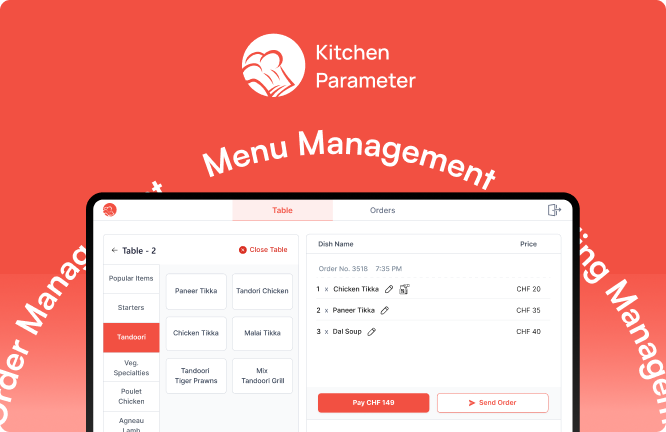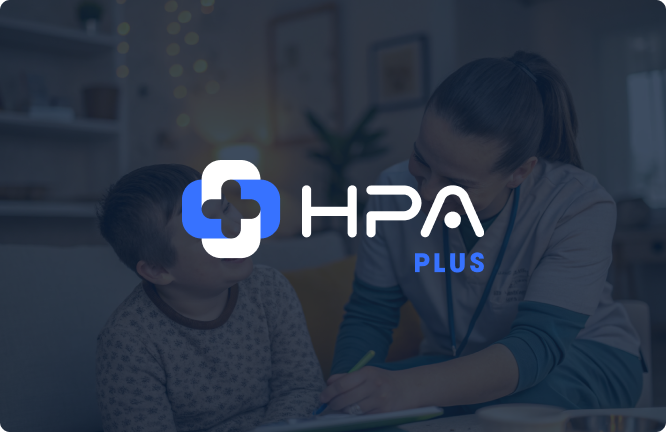The healthcare industry is undergoing a digital revolution, with mobile apps playing a crucial role in enhancing patient care, streamlining operations, and improving accessibility. In 2025, cutting-edge healthcare app development is driven by advancements in AI, telemedicine, IoT, and blockchain, ensuring faster diagnoses, secure data management, and seamless doctor-patient interactions.
With the global digital health market booming, healthcare providers, startups, and enterprises are investing in innovative app solutions to meet growing patient demands. From AI-powered diagnostics to wearable tech integration, modern healthcare apps are reshaping the way medical services are delivered.
However, with rapid advancements come challenges—data security, regulatory compliance, and user engagement remain top concerns. Developers must focus on HIPAA compliance, intuitive UI/UX, and real-time data synchronization to build high-performing, secure, and scalable healthcare applications now.
We’ll explore the latest trends, emerging technologies, and market insights that will shape the future of healthcare app development in 2025. Whether you’re a business looking to invest in healthcare technology or a developer building a next-gen medical app, this guide will provide valuable insights to stay ahead in the industry. Let’s dive into the future of healthcare innovation!
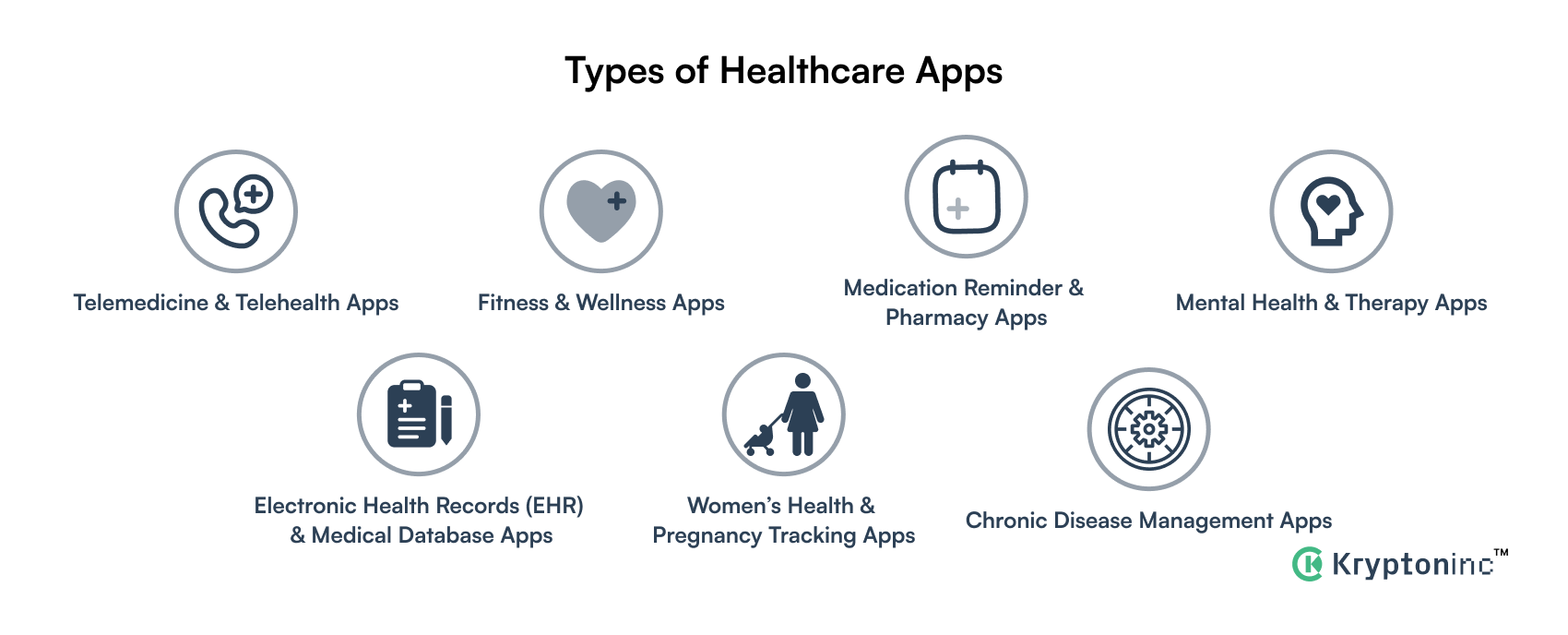
Types of Healthcare Apps
Healthcare apps have transformed the medical industry, offering seamless patient care, efficient management, and real-time health monitoring. In 2025, the demand for innovative healthcare applications is at an all-time high, with various types catering to different medical needs. Below are the most common types of healthcare apps revolutionizing the industry.
1. Telemedicine & Telehealth Apps
Telemedicine apps enable remote doctor consultations via video calls, chat, or voice calls, reducing the need for in-person visits. These apps provide:
- Instant virtual consultations with healthcare professionals
- E-prescriptions and medication management
- AI-powered symptom checkers for preliminary diagnosis
- Integration with EHRs (Electronic Health Records) for better patient data access
Example: Teladoc Health, Amwell
2. Fitness & Wellness Apps
Designed for health-conscious users, these apps track physical activity, diet, and mental well-being. Features include:
- Step counting, calorie tracking, and sleep monitoring
- Personalized workout and diet plans
- Integration with wearables (smartwatches, fitness bands)
- Guided meditation and stress management
Example: MyFitnessPal, Fitbit, Headspace
3. Medication Reminder & Pharmacy Apps
Medication adherence is a major challenge, and these apps help users manage prescriptions effectively by offering:
- Automated pill reminders and dosage tracking
- Online pharmacy services for ordering medications
- Drug interaction alerts
- Integration with doctors for prescription renewals
Example: Medisafe, PillPack
4. Mental Health & Therapy Apps
Mental health awareness has grown, leading to the rise of apps focusing on stress, anxiety, and therapy sessions. These apps provide:
- Online counseling with licensed therapists
- Self-help programs for depression and anxiety
- Mood tracking and journaling
- Cognitive Behavioral Therapy (CBT) tools
Example: BetterHelp, Calm, Talkspace
5. Electronic Health Records (EHR) & Medical Database Apps
EHR apps are crucial for clinics, hospitals, and healthcare providers to manage patient records securely. They feature:
- Centralized patient records with real-time access
- Secure HIPAA-compliant data storage
- Integration with lab results and imaging reports
- Appointment scheduling and billing management
Example: Epic Systems, Cerner
6. Women’s Health & Pregnancy Tracking Apps
Designed for women’s wellness, these apps assist with menstrual tracking, pregnancy monitoring, and reproductive health. Features include:
- Ovulation and fertility tracking
- Prenatal care and baby development tracking
- Postpartum support and mental health assistance
- Doctor consultations for women’s health issues
Example: Flo, Clue, Ovia
7. Chronic Disease Management Apps
For patients with diabetes, hypertension, or heart disease, these apps provide continuous monitoring and alerts. Key features include:
- Blood sugar and blood pressure tracking
- Personalized diet and exercise recommendations
- Medication reminders and emergency alerts
- Doctor-patient communication for remote monitoring
Example: MySugr, One Drop
With healthcare app development evolving rapidly, businesses must leverage emerging technologies to create solutions that cater to diverse medical needs. Whether it’s remote patient monitoring, fitness tracking, or mental health support, these apps are transforming the future of healthcare. Investing in the right healthcare app can improve patient outcomes, enhance accessibility, and revolutionize medical services.
Learn more about our healthcare app development process: Kryptoninc Healthcare Solutions
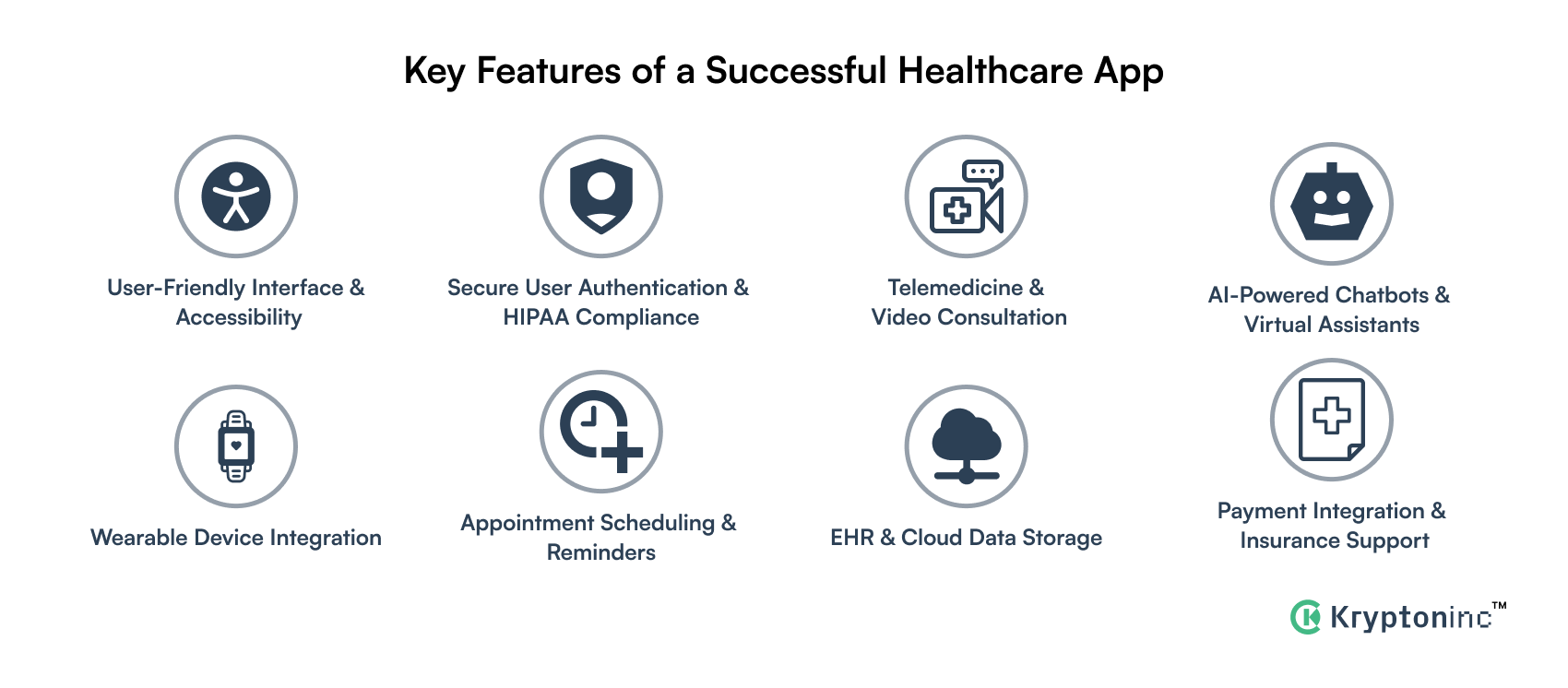
Key Features of a Successful Healthcare App
With the growing demand for digital healthcare solutions, developing a secure, user-friendly, and efficient healthcare app is crucial. Whether it’s for telemedicine, fitness tracking, or chronic disease management, the following key features define a successful healthcare app in 2025.
1. User-Friendly Interface & Accessibility
A healthcare app should have a clean, intuitive design to ensure ease of use for patients, doctors, and administrators.
- Simple navigation and easy onboarding
- Voice assistance and screen readers for accessibility
- Multi-language support for diverse users
2. Secure User Authentication & HIPAA Compliance
Data security is paramount in healthcare apps, ensuring compliance with regulations like HIPAA (USA), GDPR (Europe), and PIPEDA (Canada).
- Multi-factor authentication (MFA) for login security
- End-to-end encryption for sensitive medical data
- Role-based access control for doctors, patients, and admins
3. Telemedicine & Video Consultation
Telemedicine apps need high-quality video and audio communication for remote consultations.
- Seamless video calls with in-app messaging
- Real-time chat for follow-up consultations
- E-prescriptions for medication management
4. AI-Powered Chatbots & Virtual Assistants
AI chatbots enhance user engagement and support by answering common queries.
- 24/7 automated symptom checker
- AI-driven appointment scheduling
- Personalized health tips and reminders
5. Wearable Device Integration
Integrating with smartwatches and fitness trackers improves real-time health monitoring.
- Heart rate, blood pressure, and oxygen level tracking
- Sync with Apple Health, Google Fit, and Fitbit
- Alerts for abnormal health conditions
6. Appointment Scheduling & Reminders
A robust appointment management system enhances doctor-patient interaction.
- In-app scheduling with calendar sync
- Automated reminders via notifications and SMS
- Doctor availability tracking
7. EHR & Cloud Data Storage
Electronic Health Records (EHR) ensure seamless medical data access and management.
- Secure cloud storage for medical history
- Integration with hospital management systems
- Easy access to lab reports and prescriptions
8. Payment Integration & Insurance Support
A smooth billing and insurance claims system improves user experience.
- Multiple payment gateways (credit cards, PayPal, digital wallets)
- Insurance verification and claim processing
- Invoicing and cost estimates for treatments
A successful healthcare app must combine security, ease of use, and advanced technology to provide seamless patient care and efficient healthcare management. By integrating AI, IoT, telemedicine, and EHR systems, businesses can create innovative solutions that improve patient outcomes and enhance healthcare accessibility.

Technology Stack for Healthcare App Development
Building a successful healthcare app requires a robust, scalable, and secure technology stack to ensure data security, seamless functionality, and regulatory compliance. The right combination of frontend, backend, database, cloud services, and AI tools enhances app performance and usability. Below is a detailed breakdown of the essential technologies for healthcare app development in 2025.
1. Frontend Technologies (User Interface & Experience)
The frontend is responsible for delivering an intuitive and responsive user experience. Developers can choose from:
- React.js – Ideal for building dynamic and interactive UI components
- Angular – Offers scalability and maintainability, great for enterprise-level apps
- Vue.js – Lightweight and fast, suitable for progressive web apps (PWAs)
- Flutter – Google’s framework for cross-platform development (Android, iOS, Web)
- Swift (iOS) & Kotlin (Android) – Native development for high-performance mobile apps
Why It Matters: A smooth user interface (UI) and responsive design improve patient engagement and satisfaction.
2. Backend Technologies (Business Logic & Data Processing)
The backend handles data management, security, and application logic. Popular choices include:
- Node.js – Fast, scalable, and event-driven; great for real-time healthcare apps
- Django (Python) – Offers built-in security features and rapid development
- Ruby on Rails – Ideal for startups due to its fast development cycle
- Spring Boot (Java) – Enterprise-grade backend with high security and reliability
Why It Matters: A strong backend ensures secure, efficient, and scalable app performance.
3. Database Management System (Data Storage & Retrieval)
A healthcare app must efficiently store and retrieve patient records, medical history, and prescriptions. The best databases include:
- PostgreSQL – Open-source, reliable, and scalable
- MongoDB – NoSQL database ideal for handling unstructured healthcare data
- MySQL – Traditional relational database with strong performance
- Firebase Firestore – Real-time cloud database for instant data sync
Why It Matters: A well-structured database ensures fast access to critical medical data.
4. Cloud Computing Services (Scalability & Security)
Cloud platforms offer data storage, scalability, and compliance solutions:
- AWS (Amazon Web Services) – Highly scalable with strong security
- Google Cloud – AI-driven analytics and HIPAA-compliant storage
- Microsoft Azure – Enterprise-grade cloud with seamless integrations
Why It Matters: Cloud computing ensures secure, HIPAA-compliant data storage and seamless data sharing.
5. Security & Compliance (HIPAA, GDPR, PIPEDA)
Healthcare apps must comply with strict security standards to protect patient data. Key security technologies include:
- SSL/TLS encryption – Protects data during transmission
- OAuth 2.0 & JWT (JSON Web Tokens) – Secure user authentication
- Blockchain – Enhances data integrity and security in healthcare transactions
Why It Matters: Security features protect sensitive patient information from breaches.
6. Artificial Intelligence & IoT Integration
AI and IoT enhance patient monitoring, diagnosis, and automation. Key tools include:
- TensorFlow & PyTorch – AI frameworks for machine learning in diagnostics
- OpenAI APIs – AI chatbots for virtual healthcare assistance
- IoT Platforms (Google Cloud IoT, AWS IoT Core) – Integrates wearables for real-time health tracking
Why It Matters: AI-driven analytics and IoT-based remote monitoring improve healthcare accessibility and efficiency.
Choosing the right technology stack is crucial for building scalable, secure, and efficient healthcare applications. A combination of React, Node.js, PostgreSQL, and AWS ensures a high-performing app that meets industry standards. With the integration of AI, IoT, and blockchain, healthcare applications in 2025 will be more intelligent, secure, and patient-centric.
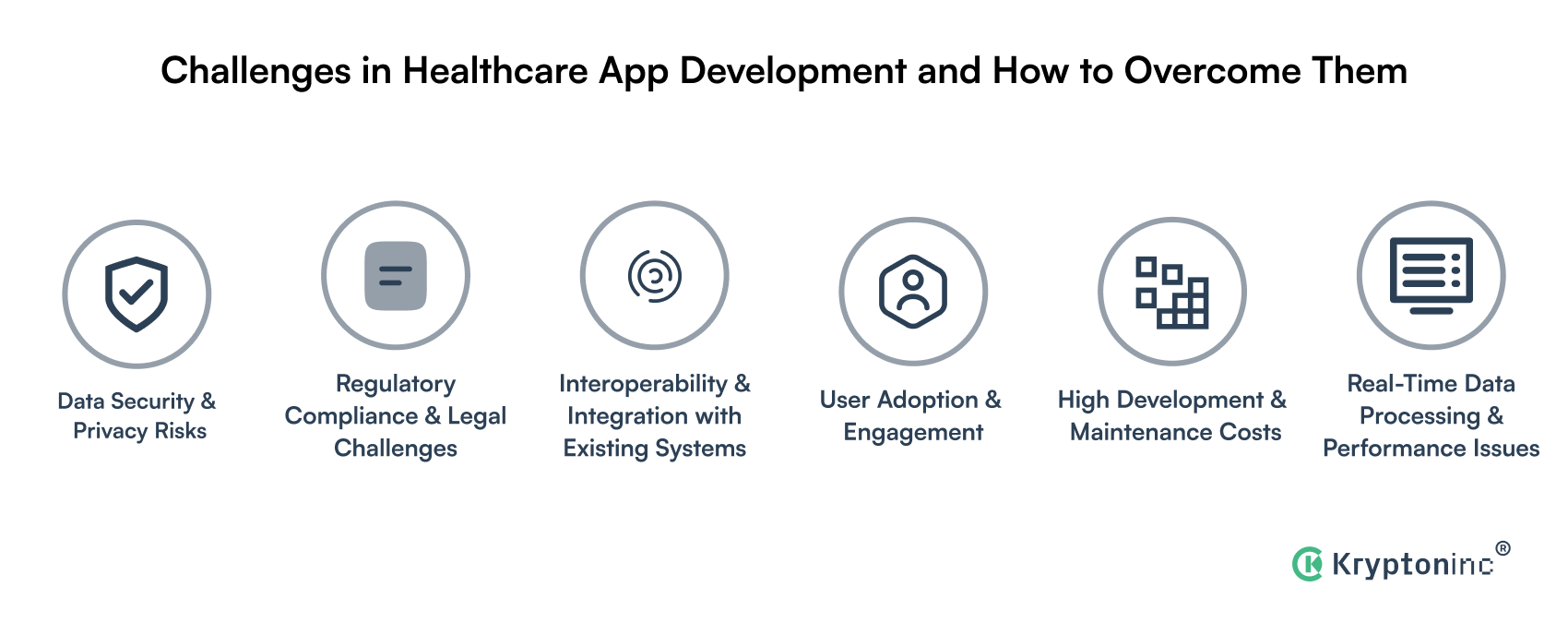
Challenges in Healthcare App Development and How to Overcome Them
Developing a healthcare app comes with unique challenges, from data security and regulatory compliance to user adoption and interoperability. Overcoming these obstacles is crucial for creating a reliable, secure, and user-friendly healthcare solution. Below are the top challenges in healthcare app development and strategies to tackle them.
1. Data Security & Privacy Risks
Challenge: Healthcare apps store sensitive patient data, making them a prime target for cyberattacks. Data breaches can result in legal consequences and loss of trust.
Solution:
- Implement end-to-end encryption (SSL/TLS, AES-256) to secure data transmission.
- Use multi-factor authentication (MFA) to prevent unauthorized access.
- Follow regulatory compliance standards like HIPAA (USA), GDPR (Europe), and PIPEDA (Canada).
- Conduct regular security audits and penetration testing to identify vulnerabilities.
2. Regulatory Compliance & Legal Challenges
Challenge: Healthcare apps must adhere to strict regulations to protect patient data and ensure ethical medical practices. Non-compliance can lead to legal penalties and shutdowns.
Solution:
- Work with legal experts to ensure compliance with HIPAA, GDPR, and other regional regulations.
- Store medical data on secure, HIPAA-compliant cloud platforms like AWS, Azure, or Google Cloud.
- Implement role-based access control (RBAC) to restrict data access to authorized personnel only.
- Keep up with changing regulations and update the app accordingly.
3. Interoperability & Integration with Existing Systems
Challenge: Healthcare organizations use different Electronic Health Record (EHR) systems, making data exchange difficult. Poor integration leads to inefficiencies and medical errors.
Solution:
- Use FHIR (Fast Healthcare Interoperability Resources) and HL7 standards for seamless data exchange.
- Integrate with popular EHR systems like Epic, Cerner, and Allscripts.
- Ensure real-time data synchronization for accurate patient records.
- Test interoperability with APIs and cloud-based solutions.
4. User Adoption & Engagement
Challenge: Many healthcare apps fail due to poor usability, complex interfaces, and low patient or doctor adoption.
Solution:
- Design a simple, intuitive, and accessible UI/UX that caters to both patients and healthcare professionals.
- Offer multi-language support and voice-assisted navigation for inclusivity.
- Provide personalized health insights and reminders to keep users engaged.
- Conduct beta testing with real users to gather feedback and improve app usability.
5. High Development & Maintenance Costs
Challenge: Developing a feature-rich, compliant, and secure healthcare app requires significant investment in technology, security, and testing.
Solution:
- Start with a Minimum Viable Product (MVP) to test core features before full-scale development.
- Use cross-platform frameworks (Flutter, React Native) to reduce development costs.
- Opt for cloud-based solutions to lower infrastructure expenses.
- Regularly update and optimize the app to avoid costly fixes later.
6. Real-Time Data Processing & Performance Issues
Challenge: Healthcare apps handle large volumes of real-time data, including patient vitals, medical records, and AI-driven diagnostics. Poor performance can lead to delayed responses and system failures.
Solution:
- Use scalable cloud platforms (AWS, Google Cloud, Microsoft Azure) for high availability.
- Implement edge computing to process real-time data faster.
- Optimize backend performance using Node.js, Python, or Java for efficient data handling.
- Conduct load testing to ensure the app handles peak traffic efficiently.
Developing a successful healthcare app requires overcoming security risks, ensuring compliance, improving interoperability, and optimizing user engagement. By following best practices in security, cloud computing, and UI/UX design, businesses can build scalable, compliant, and user-friendly healthcare solutions that improve patient care and streamline medical processes.
Healthcare app development comes with various challenges, from data security and compliance to interoperability and user adoption. To successfully navigate these obstacles and build a robust, scalable solution, it’s essential to leverage innovative e-healthcare platforms. Learn how technology is revolutionizing the healthcare industry and shaping the future of digital health solutions: Revolutionizing Healthcare with an E-Healthcare Platform.
Cost of Healthcare App Development in 2025
The cost of developing a healthcare app varies based on factors like app complexity, features, platform, security requirements, and compliance regulations. A basic healthcare app can cost $30,000 to $50,000, while advanced solutions like AI-driven diagnostics or telemedicine platforms can range from $100,000 to $500,000 or more. Below is a detailed cost breakdown.
1. Factors Influencing Healthcare App Development Cost
a) App Complexity & Features
- Basic Apps ($30,000 – $50,000)
- Appointment scheduling
- Medication reminders
- Simple UI/UX
- Medium Complexity Apps ($50,000 – $150,000)
- Telemedicine (video consultations, chat)
- EHR integration
- AI-powered symptom checker
- HIPAA-compliant security
- Advanced Apps ($150,000 – $500,000+)
- AI-driven analytics & machine learning
- IoT & wearable device integration
- Blockchain-based security
- Advanced interoperability with hospital systems
b) Development Team & Location
Development costs vary by region:
- USA, Canada, UK – $100 to $250 per hour
- Western Europe – $80 to $150 per hour
- Eastern Europe – $40 to $80 per hour
- India, Southeast Asia – $20 to $50 per hour
c) Platform (Android, iOS, Web, Cross-Platform)
- Native Apps (iOS & Android separately) – Higher cost (~30% more)
- Cross-Platform (Flutter, React Native) – More affordable, faster development
d) Security & Compliance Costs
- HIPAA, GDPR compliance – Adds $10,000 – $50,000+
- Data encryption, secure cloud storage – $5,000 – $20,000
2. Hidden Costs & Maintenance
- App Hosting & Cloud Services – $1,000 – $10,000/year
- Regular Updates & Bug Fixes – 15-20% of development cost/year
- Marketing & User Acquisition – $10,000 – $50,000+
The total cost of a healthcare app depends on features, security, and development region. Investing in scalable architecture, compliance, and AI-driven automation can enhance app performance and ensure long-term success.
Conclusion
Developing a healthcare app in 2025 requires a strategic approach that balances innovation, security, compliance, and user experience. With the rise of telemedicine, AI-powered diagnostics, IoT-based health monitoring, and EHR integrations, the demand for secure, scalable, and efficient digital healthcare solutions is higher than ever.
Choosing the right technology stack—including React, Node.js, cloud computing, and AI tools—ensures seamless performance and real-time data processing. However, challenges such as data security, regulatory compliance (HIPAA, GDPR), interoperability, and user adoption must be addressed with strong encryption, legal expertise, and API integrations.
While the cost of healthcare app development varies based on features, platform, and development region, investing in secure infrastructure, AI-driven automation, and scalable cloud solutions leads to long-term success. Continuous updates, user engagement strategies, and performance optimizations ensure that the app remains relevant and effective.
By embracing cutting-edge technology, user-friendly design, and compliance-driven development, businesses can build innovative healthcare apps that improve patient care, streamline medical workflows, and enhance healthcare accessibility worldwide.
Faqs for Healthcare App Development
The cost ranges from $30,000 to $500,000+, depending on features, complexity, platform, and security requirements. Basic apps cost less, while advanced AI-driven or IoT-integrated apps are more expensive.
Essential features include appointment scheduling, telemedicine, EHR integration, AI chatbots, wearable device support, HIPAA compliance, and secure payment options.
A strong tech stack includes React or Flutter for frontend, Node.js or Django for backend, PostgreSQL or MongoDB for databases, and AWS or Google Cloud for secure hosting.
By implementing end-to-end encryption, multi-factor authentication, HIPAA/GDPR compliance, and regular security audits to protect patient data.
Development time varies from 3 to 12+ months, depending on the app’s complexity, integrations, and regulatory requirements.
Key challenges include data security, regulatory compliance, interoperability with existing systems, user adoption, and high development costs.

